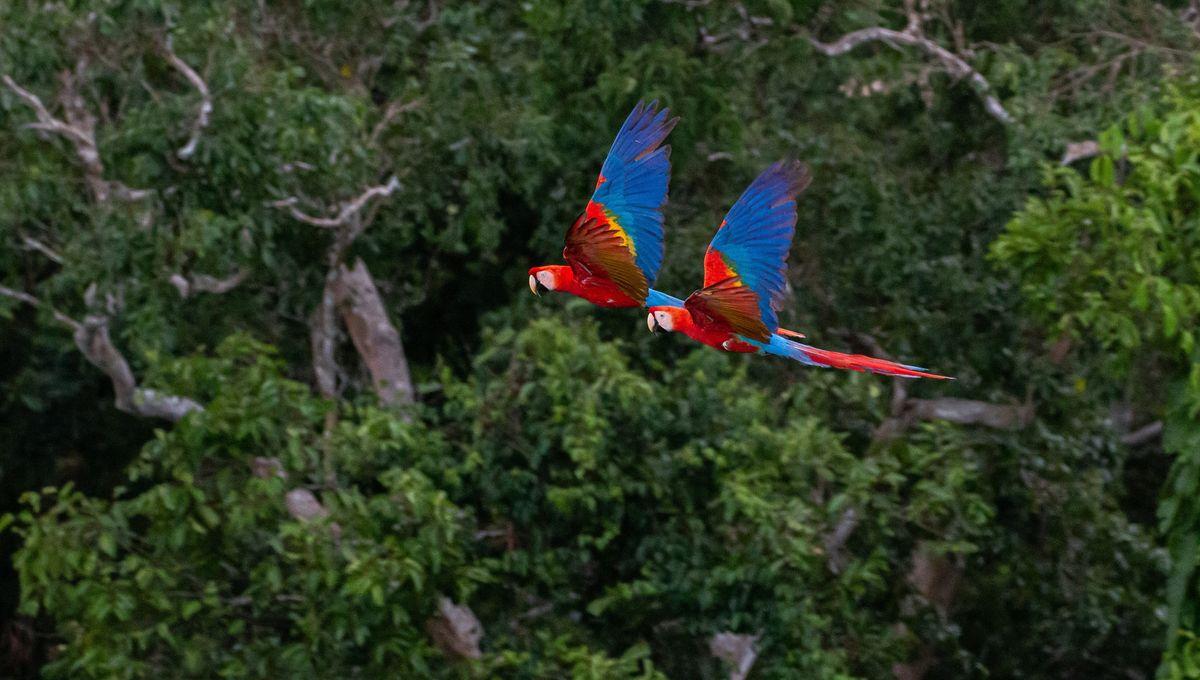Deep in the Amazon rainforest lives a culture that challenges everything we think we know about language and human cognition. The Pirahã people have captivated – and divided – linguists for decades because their language appears to lack words that express precise numerical values; threes, fours, fives, and the like simply don't factor in their existence.
This remarkable culture forces us to confront profound questions about the nature of the human mind: Is language a universal, hardwired trait? Or is it a looser, flexible skill that’s shaped, limited, and even defined by the culture that speaks it? The Pirahã are Indigenous peoples native to the Maici River, a tributary of the Amazon, in northwestern Brazil. With a total population of around 700 people, they enjoy a semi-nomadic lifestyle in the rainforest, typically dwelling in small villages made up of just 10 to 15 individuals. The most famous attempt to understand Pirahã came from Daniel Everett, who described the language for his thesis, written in Portuguese, titled: A Lingua Pirahã e Teoria da Sintaxe (1983). He was initially dispatched to the Amazon in the late 1970s on a mission to learn their native language, teach them the Bible, and convert them to Christianity. He eventually ditched this evangelistic crusade and devoted much of his life to studying this culture, becoming a professor at several well-respected universities. His initial reports in the ‘80s suggested that the Pirahã have words for “one” (hói) and “two” (hoí), distinguished only by one slight tonal inflection. However, in a 2005 study, Everett doubled down and argued that Pirahã has no words for numbers; hói and hoí actually mean something like “small quantity” and “larger quantity”. There was also the word baàgiso, which means something like “cause to come together, or many.” In other words, the language only describes quantities in terms of “some“ and “more,“ never precise numbers. Furthermore, the language has no quantifier terms like “all,” “each,” “every,” “most,” and “few”. Also of note, he claimed the language lacks words for color, and the culture holds no concept of history or existence beyond the past two generations, nor does it have any origin myths or produce artworks. Everett began to believe this linguistic quirk was deeply embedded in the culture and profoundly affected the way they thought. Even after months upon months of training, he found the adults of the village were still unable to grasp numerical concepts. “In 1980, at the Pirahã’s urging, my wife and I began a series of evening classes in counting and literacy. My entire family participated, with my three children (9, 6, and 3 at that time) sitting with Pirahã men and women and working with them. Each evening for eight months, my wife would try to teach Pirahã men and women to count to ten in Portuguese,” he wrote in the 2005 paper. “After eight months of daily efforts, without ever needing to call them to come for class (all meetings were started by them with much enthusiasm), the people concluded that they could not learn this material, and classes were abandoned,” he added. This anecdotal evidence was later supported by a 2011 study conducted by Everett’s son, Caleb, who chose to take on his father’s mantle as an anthropological linguist after growing up in the Amazon. Through a series of experiments, he found that people from the Pirahã could not consistently perform simple mathematical tasks. In one test, 14 adults from a single village were shown lines of thread spools and asked to make a matching line of empty rubber balloons. While they could match small quantities, they struggled to make one-to-one correspondences when the numbers were higher than two or three. The work of Everett Senior shook up the world of linguistics and aroused a fair amount of controversy. He used the Pirahã language as an example to counter the long-held theories of Noam Chomsky, whose primary vocation was linguistics, rather than political commentary. Chomsky's theory of language proposes that humans are born with an innate capacity for language, which he calls “universal grammar.” In this view, our brains are essentially hardwired to understand certain linguistic patterns, sounds, and qualities. Even though the world’s languages are incredibly diverse, they all follow a certain set of universal “rules” that are impossible to get away from. For Everett, the Pirahã undermined this idea because their language was shaped by unique cultural forces, not an intrinsic framework baked into human brains. He wrote in 2005: “Chomsky’s proposed universal grammar must be revised.” Many linguists have heavily pushed back against Everett’s work. A criticism of his work in 2009 wrote that many of the grammatical quirks found in the Pirahã were “misanalyzed by Everett” and even claimed there’s no evidence that Pirahã lacks concepts of quantities. Another assessment said Everett’s arguments were the linguistic equivalent of “saying that Einstein got it wrong on relativity.” Yet, regardless of where you stand in the debate, few would deny that the Pirahã language represents one of the most intriguing and extreme examples of linguistic diversity ever documented. It serves as a stark reminder that the human experience is far from one-size-fits-all; even the ways we speak, count, remember, and reason can vary in ways we’re only beginning to fully understand.




